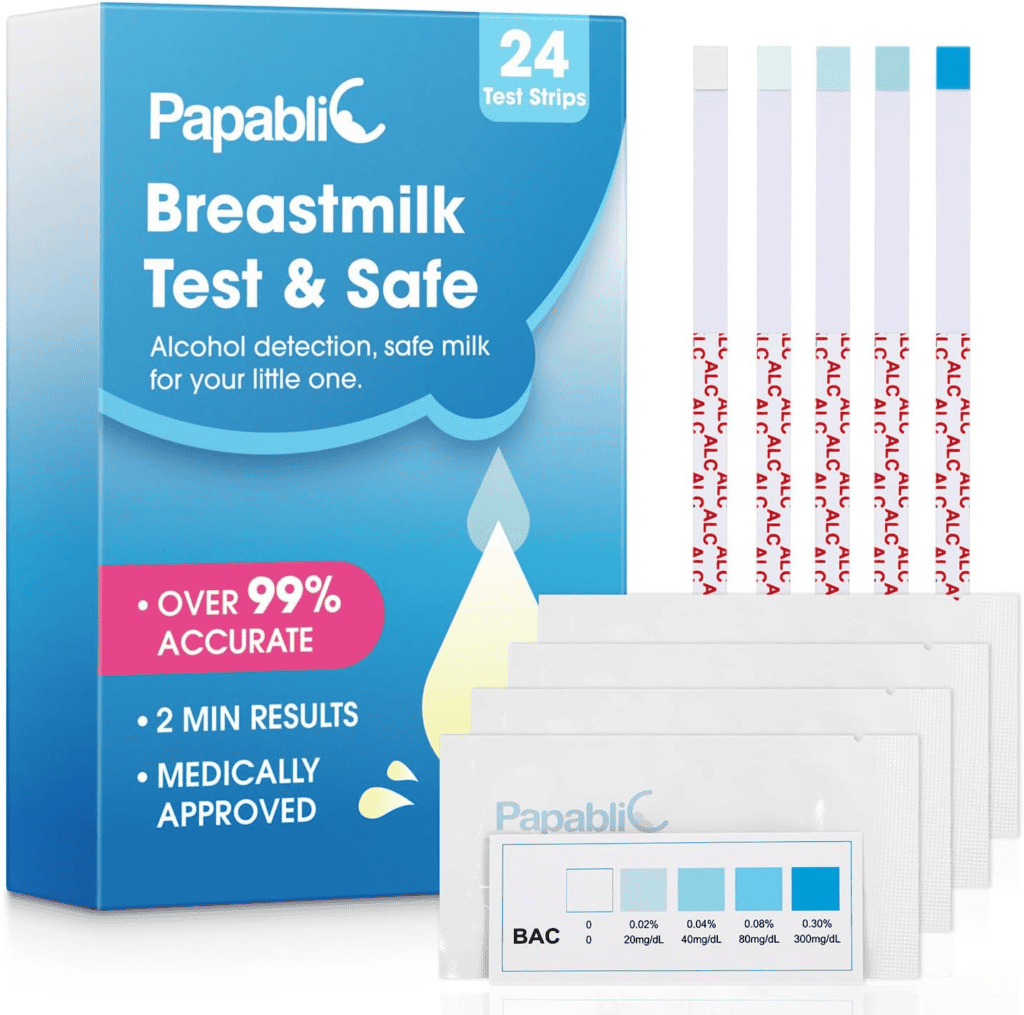- 🍼 First 3-5 days: The baby will eat a few drops of colostrum from your breast until your milk comes in. This is fine because colostrum is very nutritious, and the baby sucking it will stimulate milk production
- 🍽️ Exclusive breastfeeding until 6 months: It’s recommended to exclusively breastfeed the baby until 6 months and then continue breastfeeding up to 2 years while introducing formula (if not enough breast milk) and solids. After 1 year, you can introduce cow’s milk and stop formula
- 🍼 Frequent feeds for breastfed babies: Exclusively breastfed babies eat less in one sitting and hence more often. The recommended schedule of feeding every 2-3 hours might not work if you exclusively breastfeed
- 🍎 Feeding solids: Babies have an overly developed gag reflex, so when they eat something solid, it can stop them from ingesting it and cause them to throw up. My baby had this reflex so strongly that she couldn’t eat finger foods (only purees) until she was one year old
- 💩 Watery stools: Watery bowel movements before introducing solids are normal for breastfed babies
- 🍼 Nipple rejection. Babies need to work to get milk from the bottle just like they do from the breast to avoid preferring the bottle over breastfeeding. For that use the Premie nipple size
DOs:
- 🍲 Introduce solids: After 6 months, you should introduce solids, purees, or soft finger foods
- 💧 Water after 6 months: Introduce water only after the baby is six months old
- 🆘 Do a CPR class: You will feel much better knowing what to do if the baby chokes. It happened to me when the baby bit a small spongy ball. I turned her upside down and slapped her back until she threw up the piece and everything she ate ate that day. It was very scary! I was all shaken up
- 🪥Brush their teeth as soon as they have one (around 6 months).
DON’Ts
- 🚫 Avoid pumping or bottle feeding in the first 4 weeks: It’s recommended not to pump or bottle feed the baby in the first 4 weeks to establish a supply based on demand and to avoid nipple rejection
- 🍯 Avoid honey until 12 months: Babies can develop botulism from honey, so avoid giving it until after their first birthday
- 🧂 No salt until 1 year: Avoid adding salt to your baby’s food until they are at least one year old to protect their kidneys
- 🍭 No sugar until 2 years: Avoid giving your baby sugar until they are at least two years old to establish healthy eating habits. Milk and fruits are ok and unlikely to cause tooth decay.
- 🍽️ Diet changes for mama: I stopped drinking cow’s milk because I thought it made my baby gassy or acidic. Bad move! Studies are inconclusive about milk intake affecting baby gas, colic, or reflux.
- 🍷 Don’t drink alcohol – but if you do there is a way to control it. Alcohol is transferable in milk, but if you wait 1-2 hours after one glass of wine/beer, you can use alcohol test strips to check the milk percentage

Breastmilk Alcohol Test Strips
Relevant articles
-
Co-Sleeping: The Good, the Bad, and the Ugly – Make informed decisions
Bed-sharing, the practice of sleeping with your baby in the same bed, has been a topic of ongoing debate. While some parents find it comforting and beneficial for bonding, it’s crucial to be aware of the associated risks, especially for infants under 12 months of age. Many times, when your baby doesn’t sleep well, and…
-
Wake Windows and Nap Numbers for Babies
Waking windows are the periods of time between your baby’s naps. This period is crucial for maintaining a healthy sleep schedule for your baby and is essential for ensuring a good night’s sleep. The waking window duration varies by age and helps to ensure your baby isn’t overtired or under-tired when it’s time to nap…
-
Learn your baby’s 5 different cries. Unlock their secret language.
As a new parent, one of the most challenging tasks can be deciphering what your baby needs just from their cries. It can often feel like an overwhelming guessing game. However, understanding the Dunstan Baby Language, a method developed by Priscilla Dunstan, can transform the way you respond to your baby’s cries and ultimately lead…
